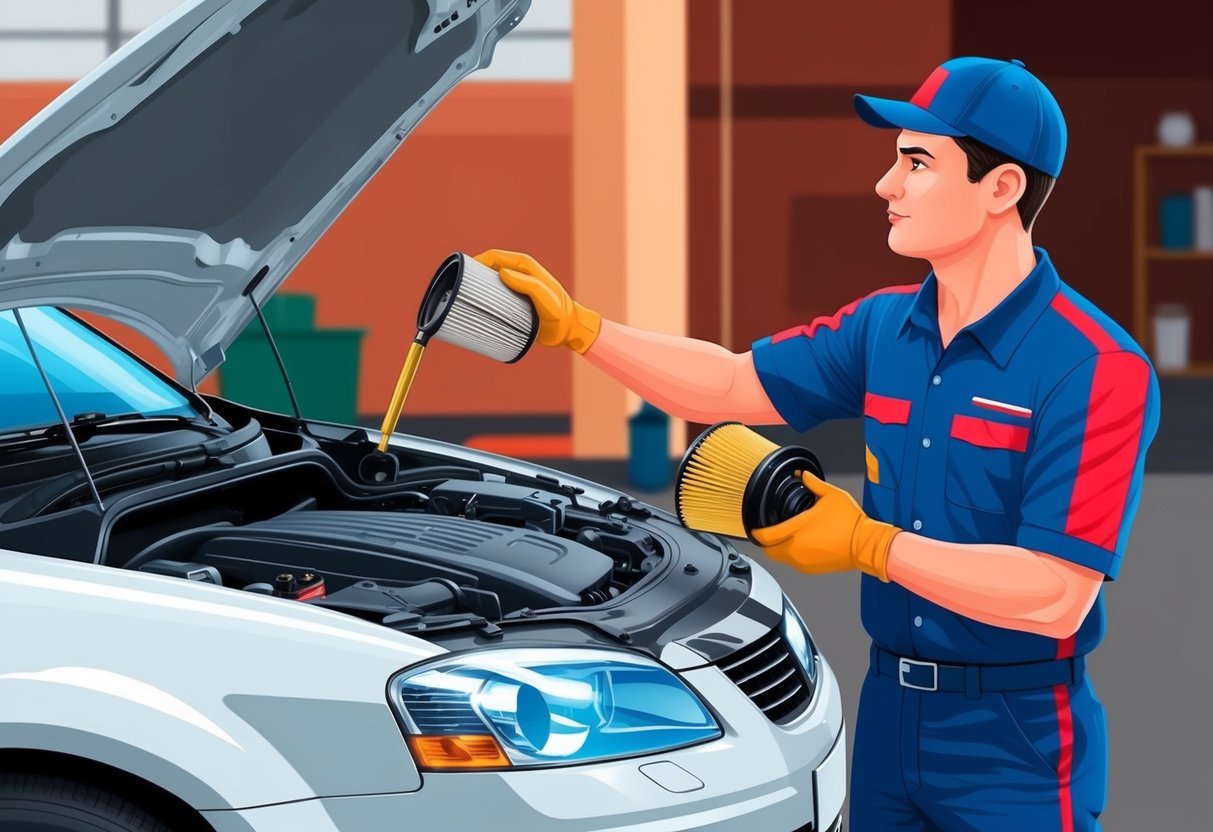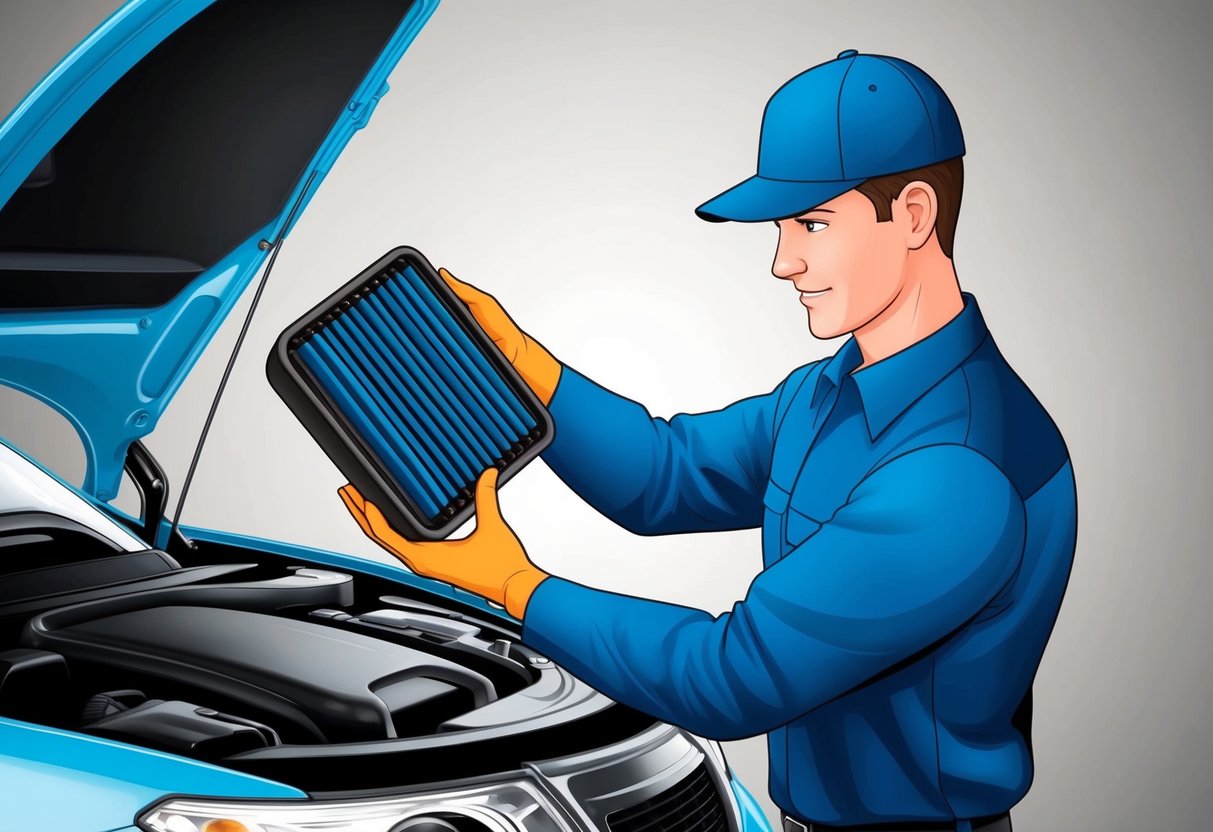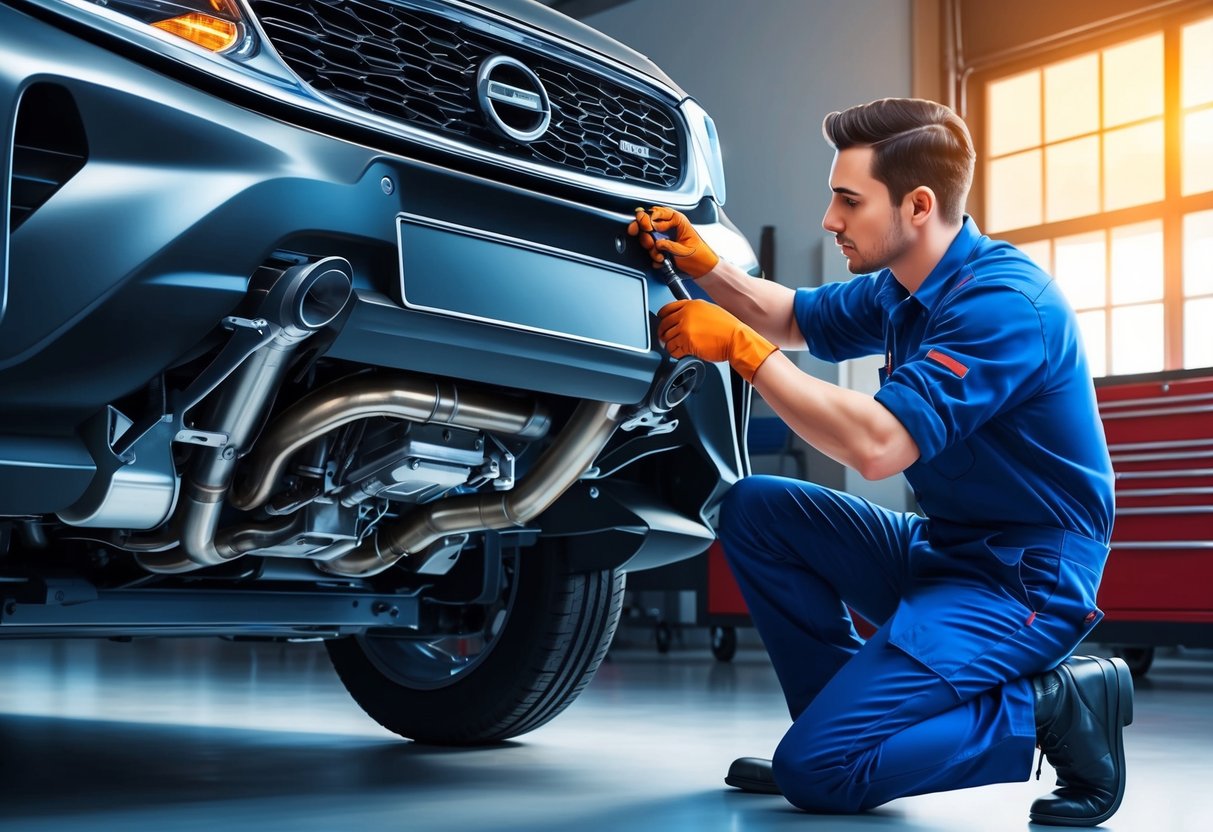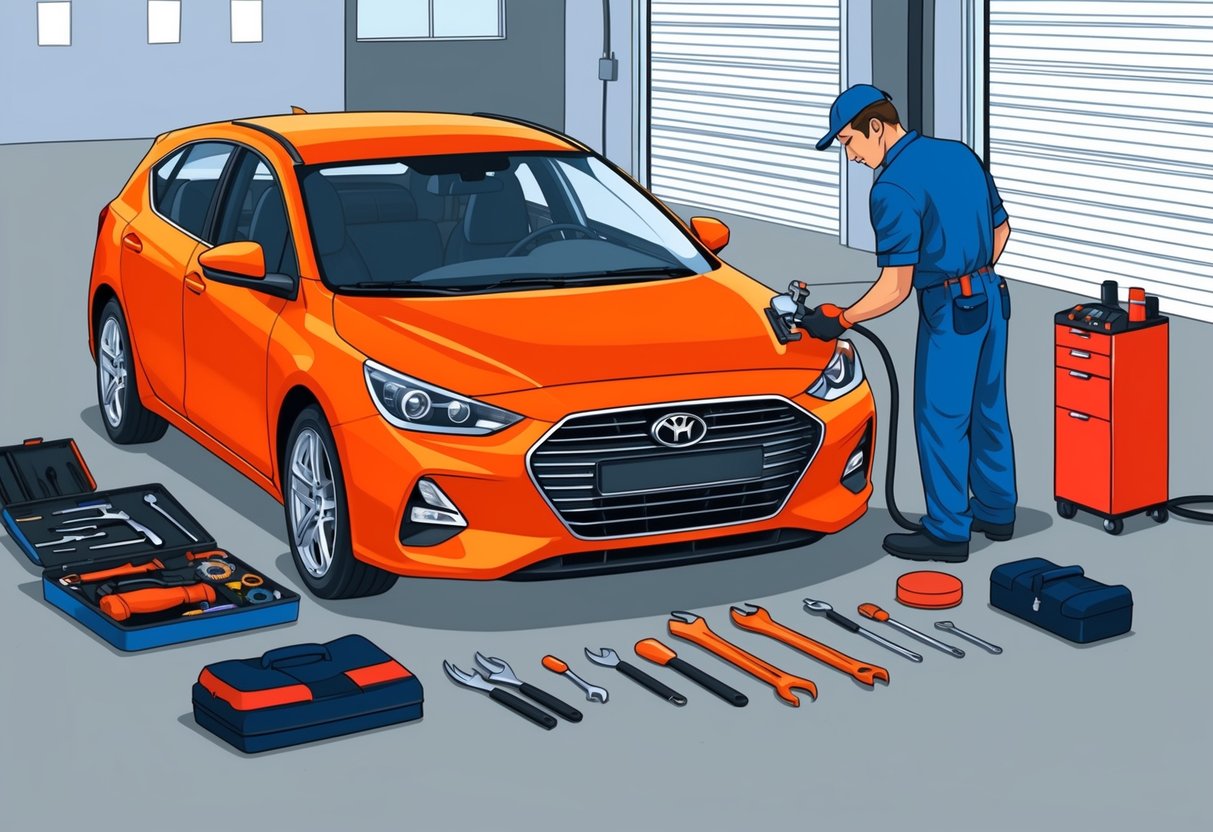
Filter Replacements to Reduce Engine Strain

Timely replacement of automotive filters is crucial for preventing engine strain and maintaining fuel efficiency. Proper filter maintenance also helps reduce costly repairs and supports the longevity of the fuel system.
Air Filter Replacement Tips
A clean engine air filter allows optimal airflow, which is vital for efficient combustion and engine performance. Blocked or dirty air filters limit the oxygen available, forcing the engine to work harder and reducing fuel economy.
Most manufacturers recommend inspecting air filters every 12,000 to 15,000 miles, but replacement may be needed sooner in dusty environments. Drivers should check for visible dirt, darkened filter material, or weakened engine response as signs it’s time to replace the air filter.
High-quality aftermarket or OEM replacements can help maximize engine efficiency. Regular air filter replacement not only improves fuel economy, but also helps engines breathe freely and avoid premature wear, as noted in guides on how air filter replacement can extend your car’s lifespan.
When to Change Cabin and Fuel Filters
Cabin air filters trap dust, allergens, and debris, affecting both air quality and HVAC performance. Experts suggest changing them every 15,000 to 30,000 miles, but more frequent changes may be necessary in heavily polluted or dusty areas.
Signs needing replacement include decreased airflow and persistent odors inside the vehicle. Fuel filters protect the fuel system by removing contaminants from gasoline or diesel before they reach the engine.
Dirty or clogged fuel filters can lead to rough idling, engine misfires, or reduced power. Industry recommendations typically range from every 20,000 to 40,000 miles, depending on manufacturer guidelines and driving conditions.
According to information on replacing fuel and cabin air filters, consistent filter changes directly support better engine performance and longevity.
Caring for the Cooling and Exhaust Systems

The longevity and performance of a vehicle depend heavily on both the cooling system and exhaust system. Prompt attention to warning signs and scheduled maintenance helps prevent engine overheating, poor emissions, and potential breakdowns.
Identifying Cooling System Issues
A properly functioning cooling system is critical for maintaining engine temperature and preventing overheating. Common indicators of trouble include rising temperature gauge readings, visible coolant leaks, and steam from under the hood.
Inspect radiator hoses regularly for cracks or soft spots. Low coolant levels or signs of rust in the reservoir can signal internal corrosion or leaks.
Unusual odors, especially a sweet or syrupy smell, often indicate leaking antifreeze. It is vital to flush and replace coolant at intervals recommended by the manufacturer.
Look out for dashboard warning lights related to engine temperature. If the heater starts blowing cold air while the engine is warm, there may be low coolant or a faulty thermostat.
For a complete maintenance checklist, refer to this car maintenance guide.
Maintaining the Exhaust System
The exhaust system removes harmful gases, controls emissions, and helps maintain quiet operation. Frequent inspections of the muffler, catalytic converter, and exhaust pipes are necessary to detect rust, holes, or loose connections.
Listen for new or unusual noises such as rattling, hissing, or loud roaring. These often indicate issues like loose or damaged components.
Pay attention to any warning lights related to emissions on the dashboard. Visible smoke from the tailpipe, especially blue or black exhaust, points to underlying engine or emission problems.
Ensure regular inspections during routine maintenance to identify leaks early and maintain efficiency. Following these steps helps both prolong the life of the system and supports overall vehicle performance, as highlighted in these vehicle performance maintenance tips.
Improving Fuel Efficiency Through Smart Maintenance

Regular automotive maintenance and attention to fuel system care are key to maintaining strong fuel efficiency. Improved driving habits and a healthy fuel system can result in lower fuel costs, smoother performance, and a longer engine life.
Optimizing Driving Habits
Smart driving habits have a direct effect on fuel efficiency. Gentle acceleration and braking reduce excess fuel consumption and lower strain on engine components.
Aggressive driving, such as rapid acceleration or hard braking, can decrease gas mileage and wear down parts faster. Proper tire inflation is another simple yet crucial step.
Studies show that keeping tires correctly inflated can improve fuel efficiency by up to 3%. Periodically check tire pressure and keep it at the manufacturer’s recommended levels for best results.
Reduce idling whenever possible, as prolonged idling wastes fuel and contributes to carbon buildup inside the engine. Use air conditioning wisely, since it can raise fuel consumption, especially when driving at low speeds.
If possible, plan routes in advance to limit unnecessary stops and minimize total driving distance as discussed by fleet maintenance experts.
Addressing Fuel System Problems
Maintaining the fuel system is essential for both fuel economy and engine health. Dirty or clogged air filters reduce engine efficiency and may lead to higher fuel consumption.
Replacing the air filter at regular service intervals ensures clean airflow and optimal fuel combustion. A well-maintained fuel system includes timely spark plug and fuel filter replacements.
Spark plug issues can cause misfires and poor fuel burn, which decreases fuel efficiency. Technicians recommend periodic inspection and replacement as part of routine service.
Fuel injector cleaning helps prevent buildup that may restrict fuel flow. Addressing fuel leaks or malfunctioning sensors promptly can prevent further inefficiencies.
These basic maintenance steps, supported by expert mechanics, can significantly extend the longevity of the fuel system and maximize mileage.